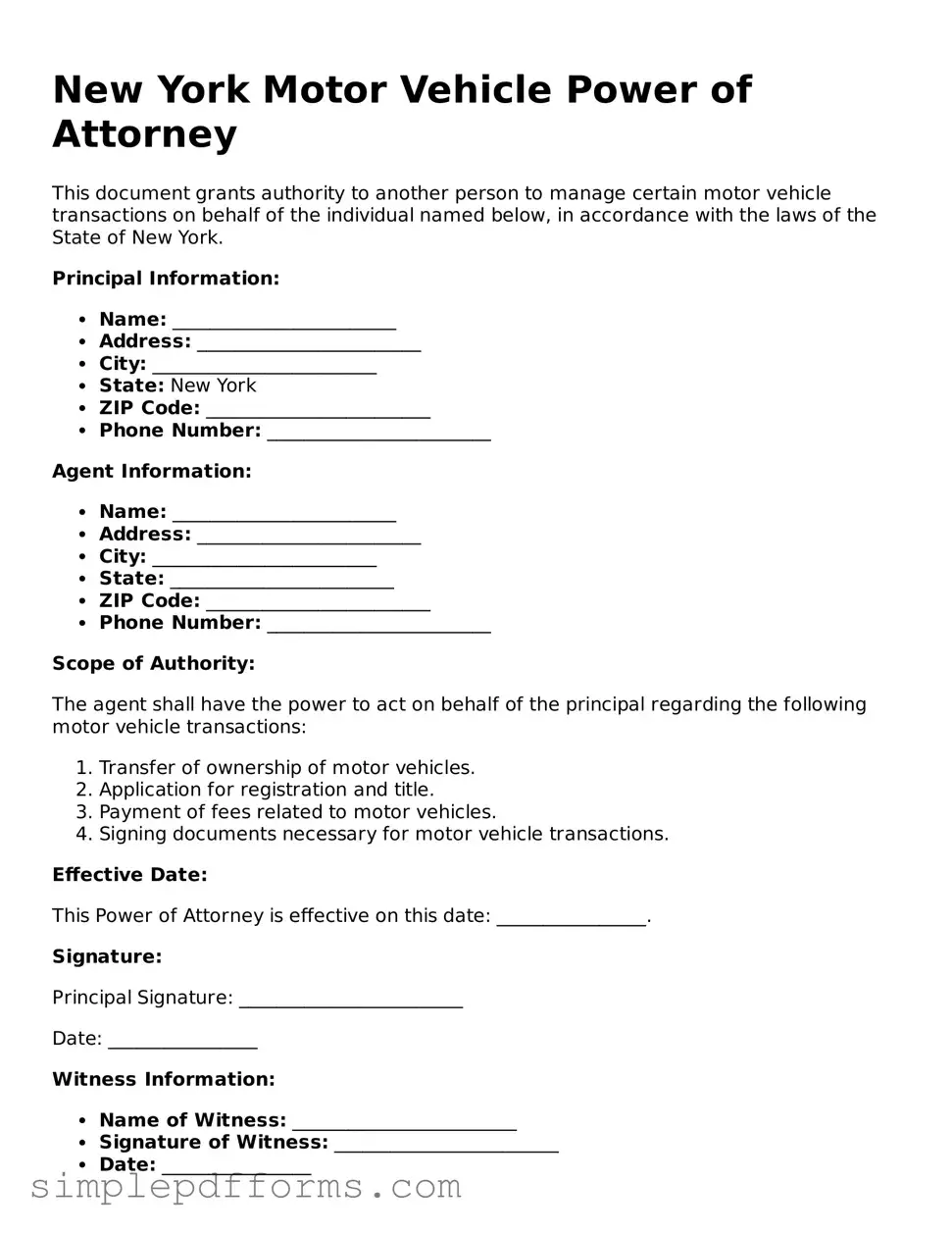Attorney-Verified Motor Vehicle Power of Attorney Document for New York State
The New York Motor Vehicle Power of Attorney form is a legal document that allows an individual to designate another person to act on their behalf in matters related to motor vehicles. This can include tasks such as transferring ownership, registering a vehicle, or handling other motor vehicle-related transactions. Understanding this form is essential for anyone needing assistance with vehicle-related legal matters in New York.
Open Motor Vehicle Power of Attorney Editor Now

Attorney-Verified Motor Vehicle Power of Attorney Document for New York State
Open Motor Vehicle Power of Attorney Editor Now

Open Motor Vehicle Power of Attorney Editor Now
or
Get Motor Vehicle Power of Attorney PDF Form
Your form is waiting for completion
Complete Motor Vehicle Power of Attorney online in minutes with ease.